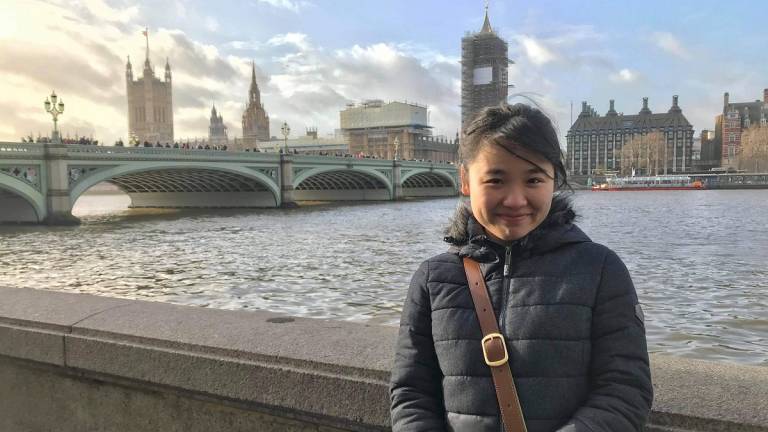Meet Nanami Tsuchiyama, former UPCH student and 2019 UPCH Progression Scholarship winner. Nanami went on to study Geography with Quantitative Methods BA at UCL.

Where were you before coming to UCL?
I’ve been living in Tokyo, Japan for more than half of my life. I lived close to and went to school in Shibuya which is one of the busiest areas not only in the city, but also the whole country, and famous for youth fashion and culture.
Before that, I used to live in the United States with my family for a couple of years when I was young. I also went to the US for an exchange programme when I was in high school for 10 months.
Why did you choose to study at UCL?
I chose UCL because I was attracted to the diverse student body and its overall reputation as an institution.
In addition, the Geography with Quantitative Methods programme, which let me pursue my interests both in the subject and data analysis skills, was not a course many universities have.
Also, growing up in Tokyo, it was hard for me to imagine myself not in a city. London offers so many different opportunities, so that was very appealing.
What course do you study now and what is it like?
I currently study Geography at UCL. I’m attracted to this subject because of its relevance to society; all modules I took this year used events and issues happening in the real world as course material, and we also had the opportunity to go out and conduct fieldwork in two cities, Barcelona and London.
The quantitative methods pathway allows me to learn more about data analysis with students studying different degrees in social science, which is quite interesting as well.
How has the UPC helped you in your undergraduate degree?
The Geography and the Build Environment module was really helpful because I wanted to study Geography. Through this module, I was able to learn concepts which built the foundation of my undergraduate studies.
The writing assignments I had for both the compulsory and optional modules prepared me well for essay writing this year; I learned how to structure an essay, what sort of vocabulary I’m supposed to use, how to cite, etc.
What was the most enjoyable part of the UPC?
As the class size is quite small, I was able to recognise everyone in each of the modules and get to know my teachers and tutors well, which I think is different from university and I liked that.
I am still close with the friends I made that year even after finishing this course, because we can share our memories of the challenging times we went through in UPC.
What was the most challenging part of the course and how did you overcome it?
I think the toughest part about the course was time management. Depending on the time of the year, there were a lot of assignments, and keeping up with those along with readings and preparations for each class was quite challenging.
I just made sure I knew what I had to do each week and figure out what I needed to prioritise. This skill is something I found useful in my undergraduate studies.
What did you do when you were not studying for the UPC?
I joined the Japan Society and taught Japanese in the language classes for the advanced level. I enjoyed sharing my culture and meeting people who are also from Japan or have an interest in the country. In my free time, I enjoyed reading, watching movies and drinking bubble tea.
What do you want to do once you’ve finished your degree?
I’m thinking of applying for a Master's in a field related to either urban planning or geographical data analysis in the UK.
What is it like living and studying London?
London is a great environment where I can concentrate on my studies. It really helps when the city has 40 universities and hundreds of thousands of students. There are a variety of study areas like libraries and cafés where you can spend time on your studies. While I had to get used to the nature of studying in libraries, these are excellent areas to work on your assignments.
I feel welcomed in London, and I love the feeling of being part of the community.
What advice would you give to a prospective UPC student?
Studying together with friends for exams is really helpful because you can exchange different ideas for essays and ask for feedback on presentations. It’s also just nice to have someone you can talk if you’re feeling stressed.
 Close
Close

